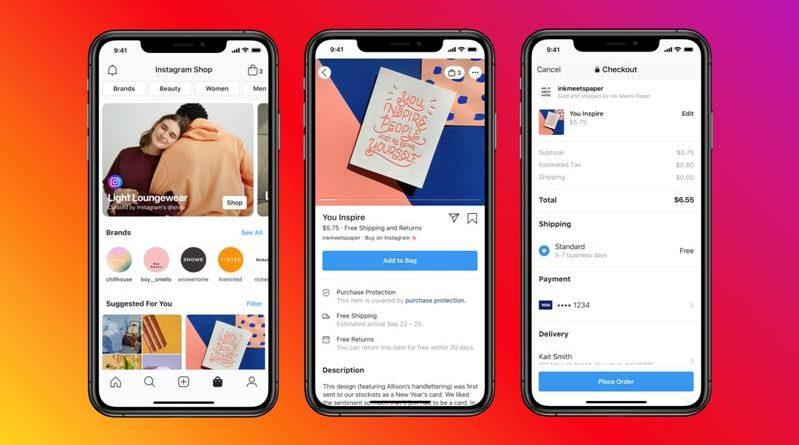Facebook Shops comes to Nigeria: Helping Small Businesses Sell Online – Agwu, C. J
Social media giant, Facebook, has announced the launch of Facebook Shops, its Marketplace, in Nigeria. Facebook shops is an e-commerce service for small businesses where people can discover, buy and sell items from others in their local communities and can also browse and search for items, sort based on distance or category.
Facebook Shops today houses more than 50 million small and medium business pages who rely on Facebook Stores to drive leads. ‘Facebook Shops’ have become quite a favorite for new entrepreneurs, looking to swiftly reach a wide audience with minimal or zero costs. It wouldn’t be wrong to say that a lot of veteran businesses are also using the platform.
According to the Head of Public Policy for Anglophone West Africa, Adaora Ikenze, the launch of the Marketplace in Nigeria “comes at a crucial time as the effects of the COVID-19 pandemic continues to impact people and businesses, and with many people buying and selling on Facebook, this will provide people with a convenient destination where they can discover new products, shop or find buyers for the things they are ready to part with,” Selling through the Facebook shops is easy. When a seller listed an item on the Marketplace, they had created a public listing that could been by anyone on Facebook, including people on Marketplace, News Feed, Facebook search, Facebook Groups or search engines.
According to Facebook, right now many small businesses are struggling, and with stores closing, more are looking to bring their business online. Our goal is to make shopping seamless and empower anyone from a small business owner to a global brand to use our apps to connect with customers. That’s why we’re launching Facebook Shops and investing in features across our apps that inspire people to shop and make buying and selling online easier.
Facebook Shops make it easy for businesses to set up a single online store for customers to access on both Facebook and Instagram. Creating a Facebook Shop is free and simple. Businesses can choose the products they want to feature from their catalog and then customize the look and feel of their shop with a cover image and accent colors that showcase their brand. This means any seller, no matter their size or budget, can bring their business online and connect with customers wherever and whenever it’s convenient for them.
People can find Facebook Shops on a business’ Facebook Page or Instagram profile, or discover them through stories or ads. From there, you can browse the full collection, save products you’re interested in and place an order — either on the business’ website or without leaving the app if the business has enabled checkout.
And just like when you’re in a physical store and need to ask someone for help, in Facebook Shops you’ll be able to message a business through WhatsApp, Messenger or Instagram Direct to ask questions, get support, track deliveries and more. And in the future, you’ll be able to view a business’ shop and make purchases right within a chat in WhatsApp, Messenger or Instagram Direct.
Elaborating further on how Facebook ecommerce works, it stated that when a seller lists an item on the Marketplace they create a public listing that could be seen by anyone on Facebook, including people on Marketplace, News Feed, Facebook search, Facebook Groups or search engines. Sellers could simply take a photo of an item, enter a product name, description and price, confirm their location, select a category, and post.
The company states that it is also working more closely with partners like Shopify, BigCommerce, WooCommerce, ChannelAdvisor, CedCommerce, Cafe24, Tienda Nube and Feedonomics to give small businesses the support they need. These organizations offer powerful tools to help entrepreneurs start and run their businesses and move online. Now they’ll help small businesses build and grow their Facebook Shops and use our other commerce tools.
Facebook states that items, products or services sold through its marketplace must comply with its community standards and commerce policies and advised buyers to request a certificate of authenticity or proof of purchase for high-value items like watches, luxury bags and others stating that “If you’re not satisfied with an item’s condition or have doubts about its authenticity, you can decline to complete the purchase. If the seller offers to ship the item rather than exchanging it in person, keep in mind that you may not have the opportunity to verify the item before completing your purchase,”
Like existing marketplaces such as Jiji and Vconnect, it advises that buyers and sellers should meet in public places and to use cash, Cash on Delivery, or person-to-person payment methods rather than payment links, “Don’t share your financial account information (example: Payment login and password, bank account info) with buyers or sellers,” Facebook stated.




